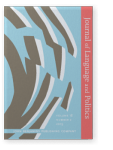Vol. 18:2 (2019) ► pp.207–230
Negotiating digital surveillance legislation in post-Snowden times
An argumentation analysis of Finnish political discourse
In the digital era, when security agencies world-wide have been challenging basic democratic principles with massive data gathering, Finland has had a different approach: it has conducted no large-scale surveillance of citizens’ online activities. Now, however, the country is planning such a vast expansion of state surveillance that the constitution itself must be altered. The present article examines one key point in this legislative process to see how the new surveillance measures are argued for and criticized, and how the differing points of view are negotiated to ultimately enable political action. Drawing particularly on Fairclough and Fairclough’s (2012) approach to argumentation in political discourse, the article finds that surveillance is promoted as essential for national security, and criticized especially for its economic risks, consequences for civil rights and questionable effectiveness. Despite this range of critical perspectives, only economic considerations become a topic of extended deliberation.
Article outline
- 1.Introduction
- 2.Digital surveillance and the case of Finland
- 2.1Surveillance in the digital age
- 2.2Developing Finnish intelligence legislation
- 3.Critical discourse studies: Political discourse and argumentation
- 4.Data
- 5.Analytical process
- 6.Arguing for and against digital surveillance
- 6.1The argument for digital surveillance
- 6.2Constructing, questioning and negotiating the means-goal premise
- 6.3Questioning and negotiating economic consequences
- 6.4Questioning and negotiating civil rights consequences
- 7.Conclusion
- Acknowledgements
- Note
-
References
